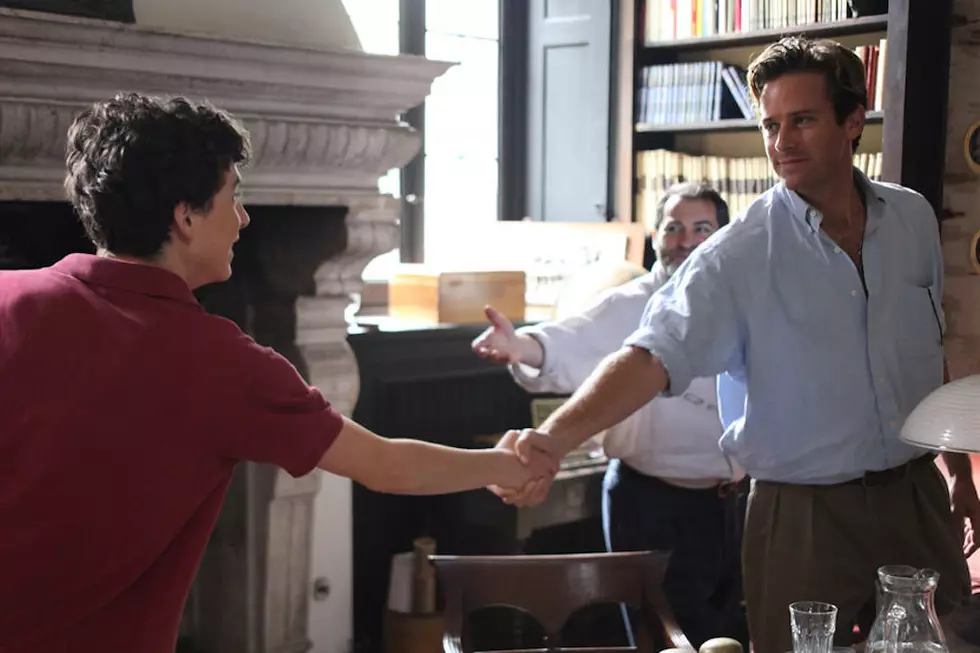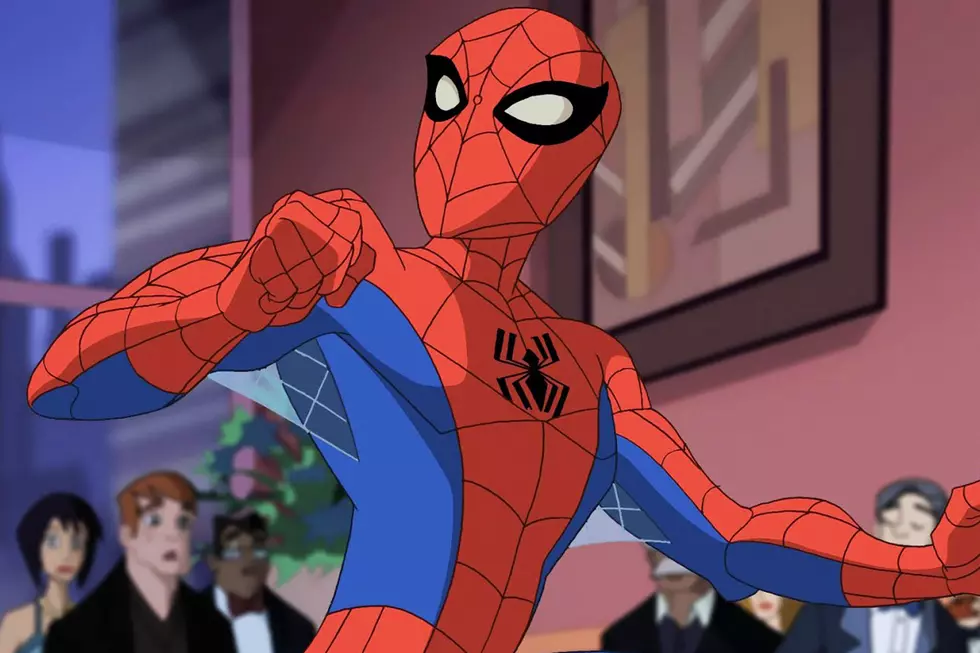
‘Little Men’ Review: Ira Sachs’ Touching Drama on Boyhood, Friendship and Gentrification
Few filmmakers capture male relationships with as much compassion, and New Yorkers with as much authenticity, as Ira Sachs does. In Little Men, the follow-up to 2014's Love Is Strange, the filmmaker once again looks at two lives pulled apart by financial woes and the New York housing system. In the 2014 drama his leads were a newlywed gay couple forced to move out of their Manhattan apartment, and in his latest Sachs shifts his focus to two teenage boys caught in the middle of a lease dispute.
Jake (Theo Taplitz) is an introverted, bookish 13-year-old with aspirations to be an artist. Like his actor-father Brian Jardine (Greg Kinnear), Jake has a hard time making friends. When his grandfather dies, the Jardine family moves from their Manhattan apartment to the building he owned in Brooklyn. As they unload the car for the funeral reception, Jake meets Tony (Michael Barbieri), another smart middle-schooler whose Chilean mother Leonor (Paulina Garcia) runs a dress shop below the Jardine’s building. The two quickly become friends, Tony the outgoing, expressive counterpart that helps Jake open up. Tony wants to be an actor and has dreams of attending LaGuardia High School the following year, something that inspires Jake to work harder on his paintings.
Just as Jake begins acclimating to his new life in Brooklyn, the boys’ socio-economic differences complicate things between the families. Leonor has paid the same low rent for her dress shop over the years despite rises in the market value. While she shared a close friendship with Brian’s father who never changed her rent, Brian and his sister (Talia Balsam), insist on raising it. It becomes a hostile war instigated by gentrification, one where someone like Brian has the privilege of being an off Broadway actor thanks to his wife supporting the family, but a Chilean single-mother like Leonor can no longer afford to pursue her job.
Despite being so insightful and well-spoken, Sachs’ young characters never come off annoyingly precocious or stereotypical, but endearing and authentic. Beyond the rent dispute that’s the pivot of the story, Little Men is more about the bond between two young boys, and one not often shown in film. They share one of the most gentle friendships displayed among young kids, a relationship ripe with complex emotion and ambition. As they become closer, skating through the city and talking about their families, they end up helping each other evolve into young men.
Though they flourish together, their differences are recognizable around other kids. Tony is chatty and popular at his public school, while Jake is an outsider, the quiet kid at his private school who gets picked on by his teacher. In one scene, the two go to a Sunday afternoon kids dance party that further showcases their opposite personalities. While the scene itself is a bit unrealistic – show me 8th graders who would dance to deep house over Top 40 hits and I’ll rest my case – it does show how timid Jake is, a wallflower on the fringe, whereas Tony boldly asks his crush to dance then takes the rejection smoothly. The film continues to ponder whether a friendship this strong can be overcome by the various circumstances that distinguish the two boys.
Taplitz and Barbieri, who both make their feature film debut in Little Men, ensure they’re two talented young actors to keep an eye on. Taplitz brings a sweetness and a shyness to his Tony in a reserved performance that blossoms throughout. Barbieri is the charming comedic core of the film as Tony, a goofy, gangly kid who’s sharp Brooklyn accent and swagger make him seem much more realized than most 8th graders. In the funniest scene, Tony takes Jake to his youth acting class where Tony engages in a rapid-fire improv exercise with the instructor. His animated gestures and brazenness makes Tony standout as the boldest kid in the class, and makes Barbieri the true delight of the film. Kinnear, Garcia, Jennifer Ehle as Jake’s mother Kathy and Alfred Molina in a small cameo, each give noteworthy performances.
As much as Little Men is a coming-of-age story about two boys from different backgrounds finding a common bond to grow from, it’s also a testament to the impact friendships have on us at a young age. Whatever differences and disputes may set us apart, like Jake and Tony, those experiences eventually help usher us into our matured selves. As simple as of a story as Little Men is, it’s one that finds humanity, laughter and sadness in youth’s relationships. Sachs has once again given audiences a poignant and genuine display of affection amidst the conflicts of New York City life.
More From ScreenCrush









